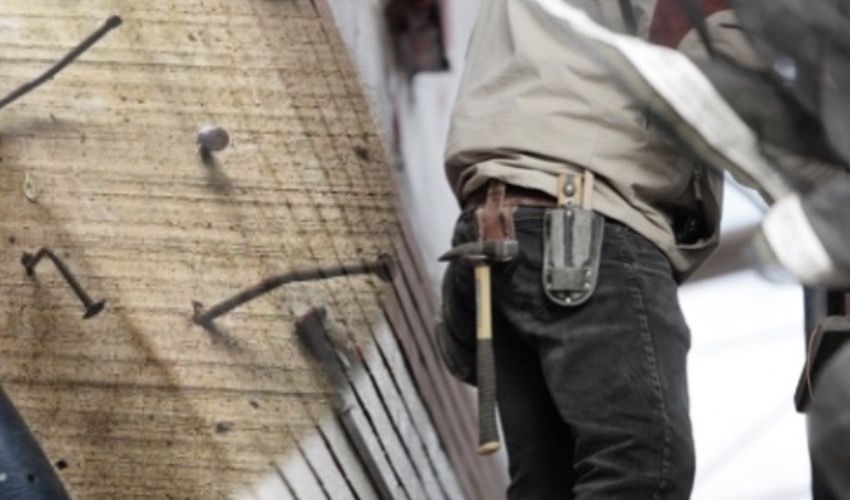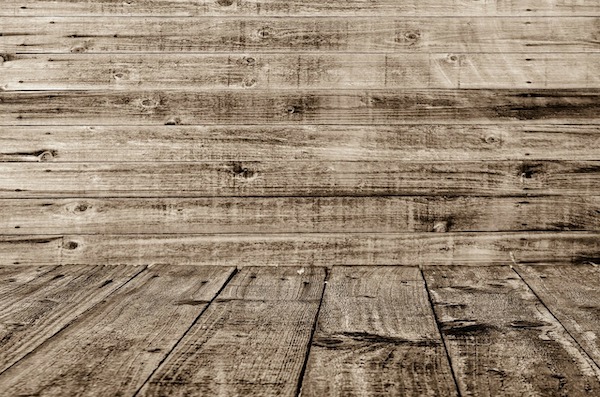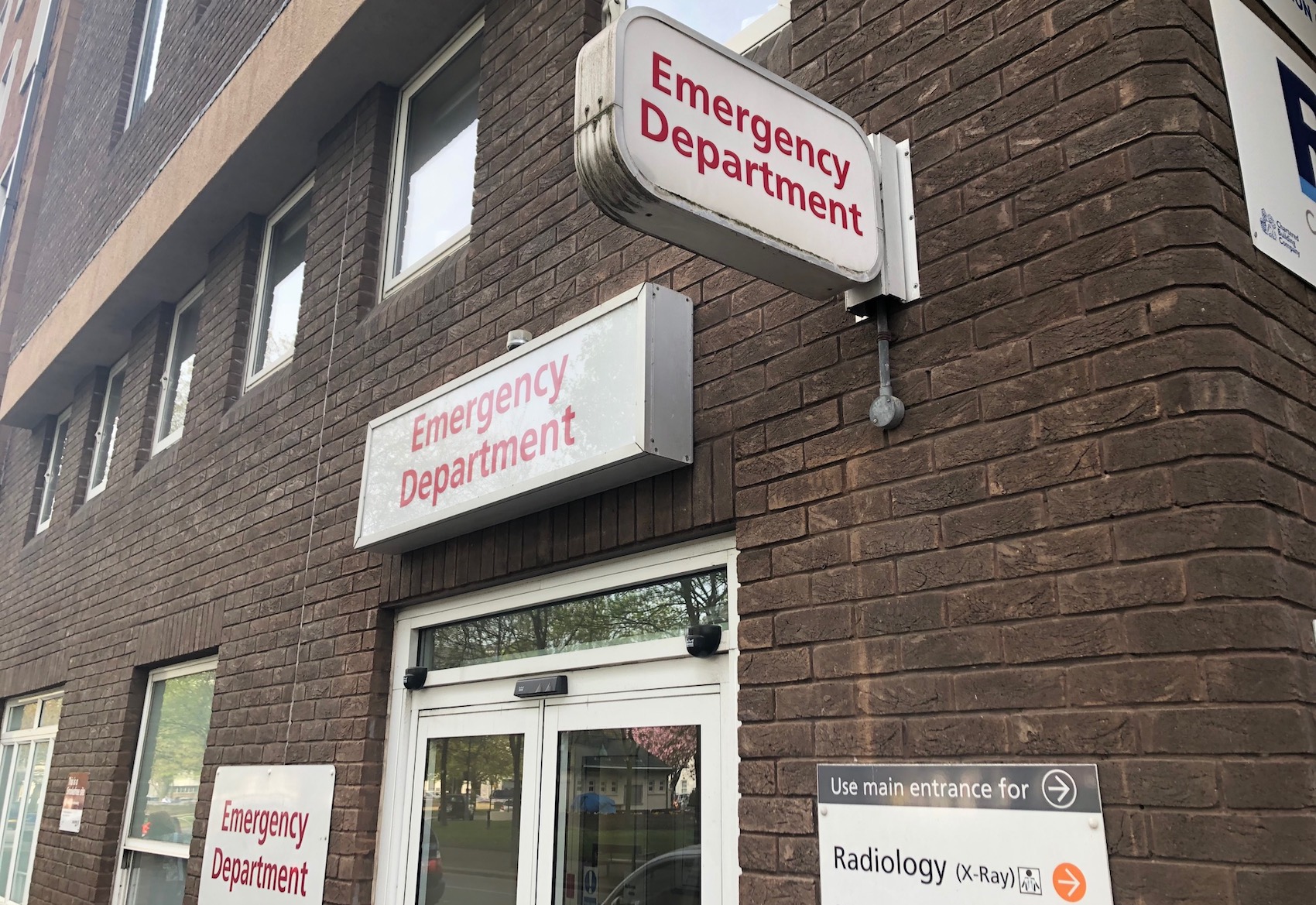

A construction firm has been fined nearly £30,000 after one of their employees plummeted 2.4metres through rotten floorboards, suffering serious spinal injuries requiring surgery in the UK.
The man, who had over 20 years of experience with R.J. Le Sueur Limited, was helping to pull floorboards from the first floor of a pool house undergoing renovation at a St. Lawrence property.
Two Directors of the company subsequently admitted breaching the Health and Safety Law, and appeared in the Royal Court this morning for sentencing.
The Court heard that, the day before his accident, one of the RJLS directors explained had seen an employee on the first floor and immediately told him to get down. He told the man, “The whole reason for taking this floor out is that it is rotten, and yet you’re on the top. What’s going to happen if you fall through there?” The victim was also present during the incident.

Pictured: The floorboards in the pool house were in really bad condition.
The following day, the Director told the victim and his colleague to remove the remaining floorboards but did not give any instructions as to how the work should be carried out.
The two employees started pulling the floorboards from the first floor, in the way that one of them had been instructed not to do. They removed the guard rails which had been installed after the staircase was removed but no alternative safety measures were put in place to prevent eventual falls.
No trestles or platforms were in place to prevent a fall through the gaps left by the floorboards as they were being removed. Crown Advocate Conrad Yates told Court: “[The risk of fall] naturally increased as more floorboards were removed.”
The victim stated that when there were two or three floorboards left to remove, he stood on a joist and it “suddenly” snapped. He fell to the ground below and landed on his back across some timber that was lying on the floor.

Pictured: The man was taken to A&E before being airlifted to a special spinal unit in the UK.
The man was taken to hospital and then flown by ambulance to a specialist spinal unit in the UK where he received surgery to repair two spinal fractures. He also suffered a cut to his head.
Both company directors acknowledged during an interview that they were aware of “a need to address some health and safety shortcomings” within the company, especially in relation to Construction Regulations that came into force in 2016.
A foreman and an independent structural engineer had been consulted before the pool house renovation had started. Shortly before the accident, the company had also engaged with the Health and Safety Project Co-ordinator to review safety and help implement new procedures.
The Crown Advocate said the risk assessments and guidance provided by the company were “inadequate” and too generic - something that had already been raised with the directors. The Court heard that the accident occurred before “positive action” had been taken.

Pictured: The company's Directors were in Royal Court this morning.
The Crown Advocate said the company had allowed the breach to continue over a number of days, while the risk of harm should have been obvious as working at heights is “inherently dangerous.”
He described the company’s approach to health and safety as “cursory at best” and said it relied on “experienced employees to work without guidance.”
He therefore suggested a total fine of £40,000, with an added £3,000 for the prosecution costs.
Stephen Wauchope, defending, told Court that those conclusions were too high and that the picture painted by the Crown Advocate was “a little uncharitable.” “The Directors admitted very readily that there were errors and that approaches to safety could have been better,” he said.
He said that one of the Directors visited each construction sites at least twice a day - “sometimes more, never less” - adding that this was not indicative of a Director “not caring about supervision.”

Pictured: The Crown Advocate suggested a total fine of £40,000.
The lawyer said that the Director was satisfied with employees using stepladders, despite trestles and scaffold boards being on the site.
He said the victim had heard the warning given to another employee, and “acknowledged it with a look as if to say, "'What’s this guy like?’” Advocate Wauchope said that after this the Director was confident the work would continue from below.
“He can’t remember if he told the employees not to ascend to the first floor to remove floorboards… He thought, in view of the incident the day before, that it would never have crossed their minds,” the lawyer told Court.
The Court heard that both Directors were “very close friends” with the victim - a friendship that was lost as a result of the accident.
The lawyer said both Directors had been “absolutely horrified” by the accident and that one of them had been “very stressed, very anxious” in the aftermath, going so far as to say, “he was not the man he had met two years ago.”

Pictured: The Bailiff said building companies should not be "casual" with health and safety measures.
Bailiff Sir William Bailhache, presiding, said the building trade, including small firms like RJLS, needed “the clearest signal” that a casual approach to health and safety measures is not enough.
He said the Directors should have been alert to the risk of employees “choosing a physically easier way of working and ignoring the instructions they had been given.”
He said the Court did not regard the Directors as “bad people”, but as having been negligent.
Sir William concluded that the accident could have been prevented but said that in light of the company’s financial circumstances the right fine should be £25,500, with an extra £3,000 towards the prosecution’s costs.
The company has been given 10 days to pay £10,000 and six months to pay the rest.
Comments
Comments on this story express the views of the commentator only, not Bailiwick Publishing. We are unable to guarantee the accuracy of any of those comments.